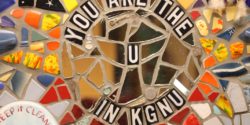Summer began for me with a short trip to Colorado, which prompted a road trip to see the sights of Boulder, including famed community radio station KGNU 88.5 FM/1390AM. Founded in 1978, the station has staff of less than ten, but an active roster of around 400 volunteers and a broadcast that reaches from Boulder to Denver and beyond.
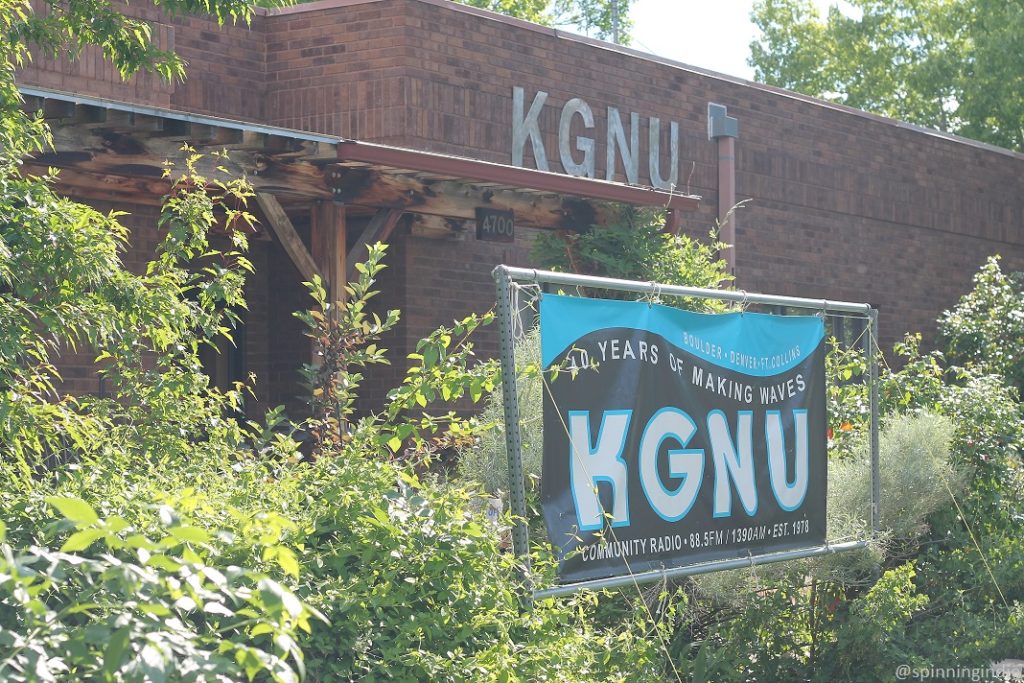
KGNU was recently on my radar after I learned about its long-running hip-hop program, “The Eclipse Show,” (reportedly the longest running hip-hop show anywhere) during a 2018 Radio Survivor interview with Hip-Hop Radio Archive founder Ryan MacMichael. Following that episode, we spoke with one of the hosts of the Eclipse Show, DJ A-L, to learn more about its 40 year history. As it turns out, the program’s history as “an alternative black radio show” (beginning in 1978) and current incarnation as a live music mix show parallels the history of KGNU; which piqued my interest about the station even more.
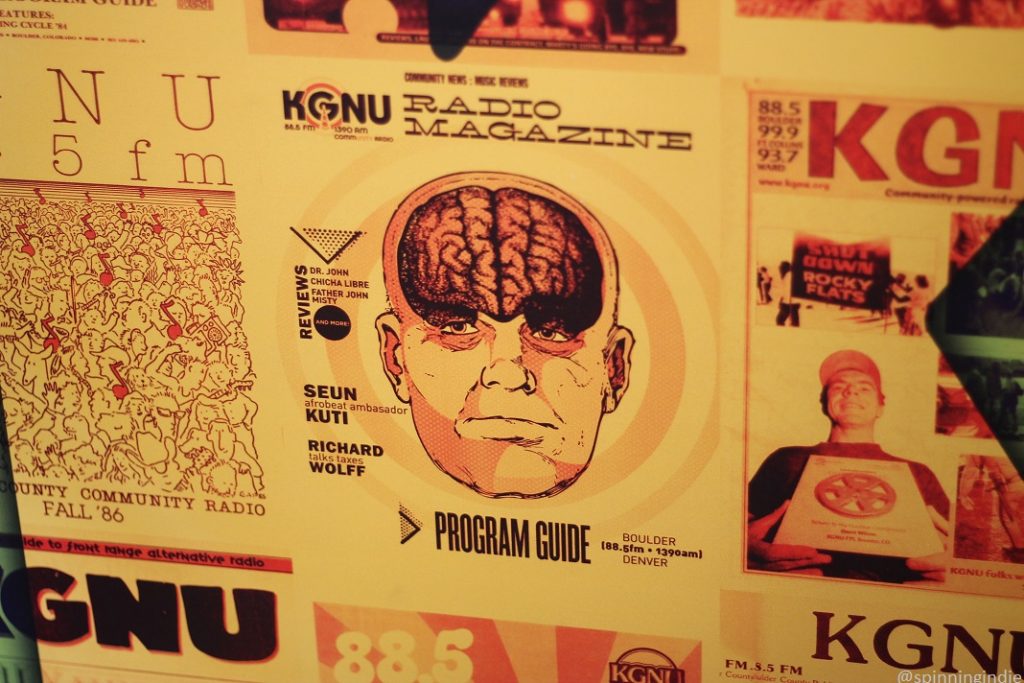
Coincidentally, KGNU kicked off its recent 40th anniversary celebration (read about the station’s early history here) with a New Year’s Eve hip-hop show, followed by a series of events, including a gala and a museum exhibit. Over the airwaves, the station did weekly music flashbacks (“40 Years in 40 Weeks”) and monthly programming flashbacks (“Flashback 40”), highlighting historic archives, including early LGBTQ and feminist programming.
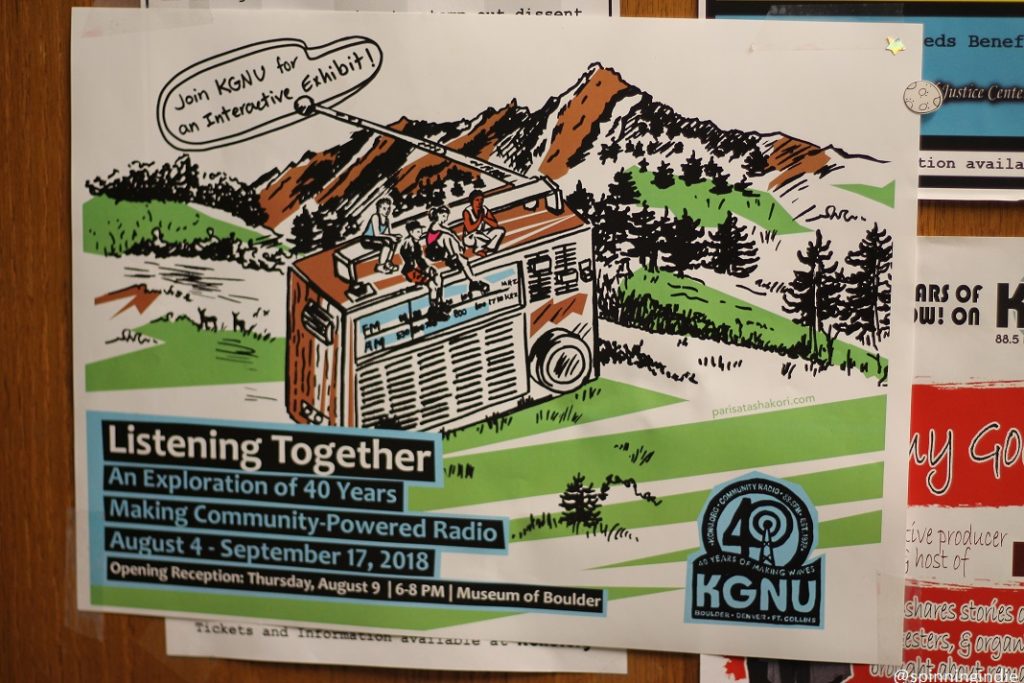
Music and public affairs programming are important aspects of KGNU, with the FM schedule comprised of news/public affairs during traditional commute times (weekday mornings and afternoons) and for much of the daytime hours on Saturdays. Music rounds out the FM schedule and is also the entire focus of a special KGNU stream called “After FM,” for listeners who would like to tune in to KGNU music programming round-the-clock.
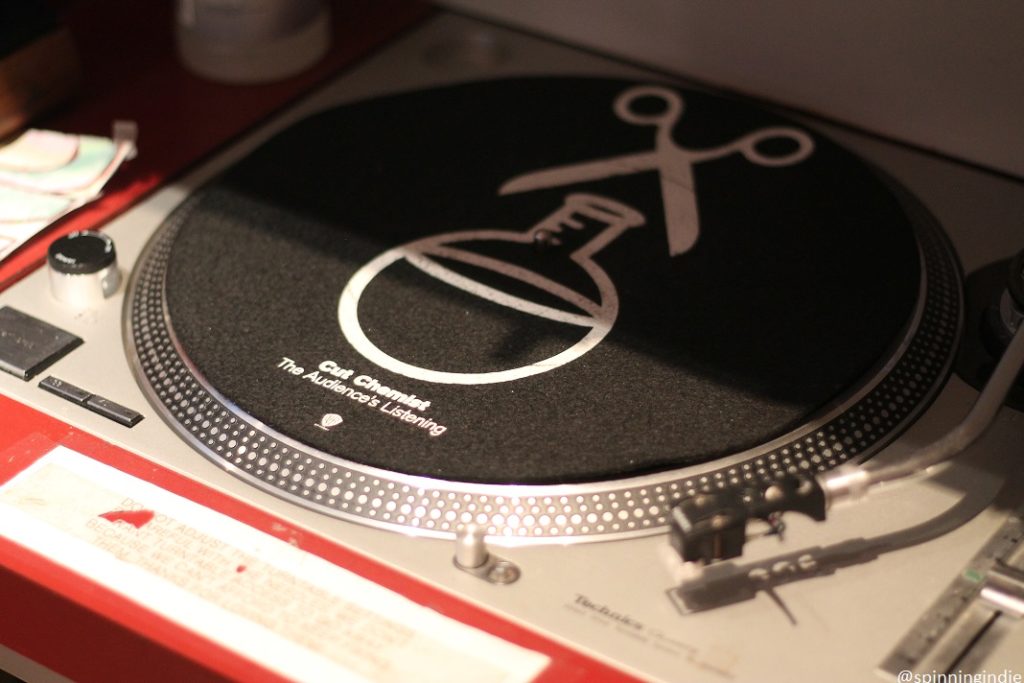
In addition to “The Eclipse Show,” another long-time program on KGNU, “Reggae Bloodlines,” has been on the air since 1978. Other music shows run the gamut from blues to electronic to folk to opera to jazz to experimental sounds.
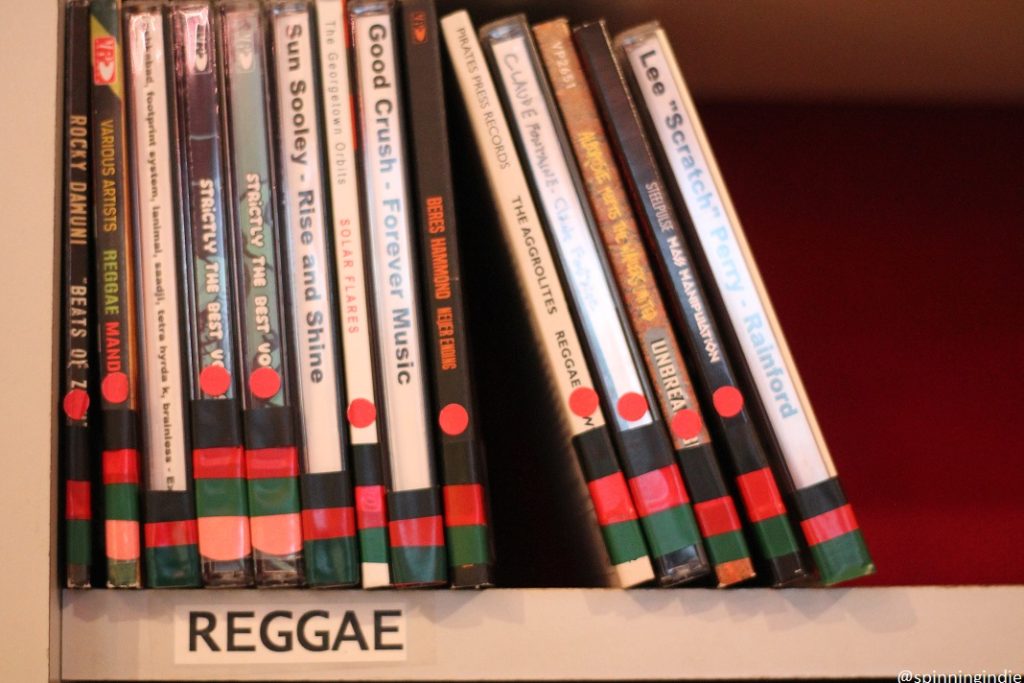
On my visit to KGNU, Station Manager Tim Russo showed me around the Boulder digs and sat down for an interview with me. Connected with KGNU for around 20 years (and Station Manager since 2015), he first got involved while a student and campus activist, telling me that he recognized that radio was a way to “amplify” voices.
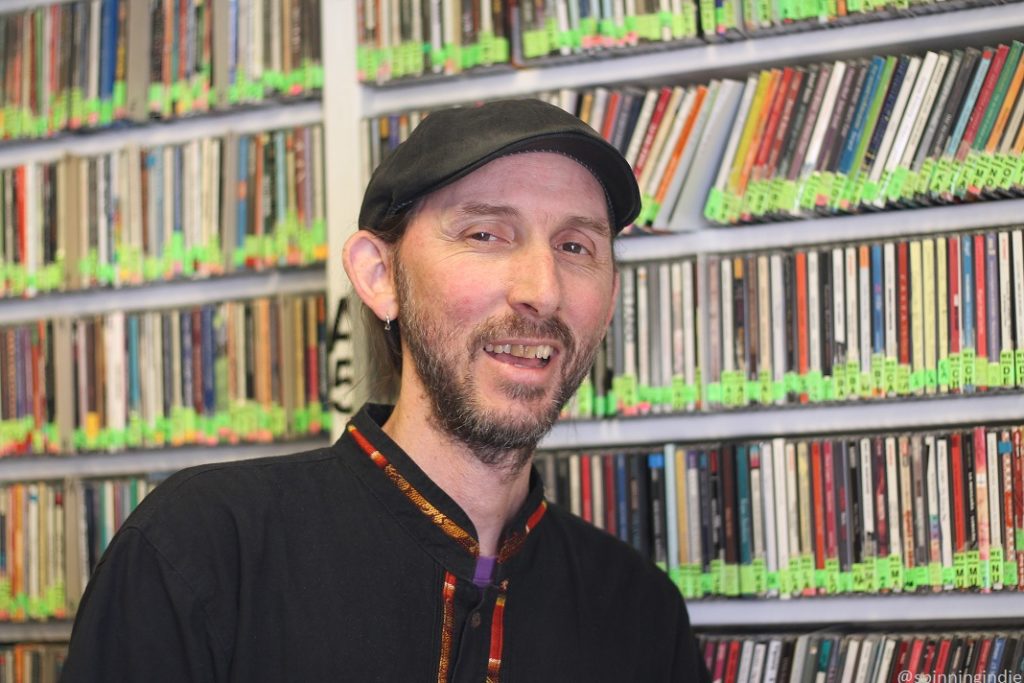
I was particularly excited to see the ways that KGNU works with local organizations, including numerous groups focused on youth. They’ve run youth radio camps, have worked with high school groups, and have a multi-year Media Gardens projects working with bilingual young people on art and radio projects.
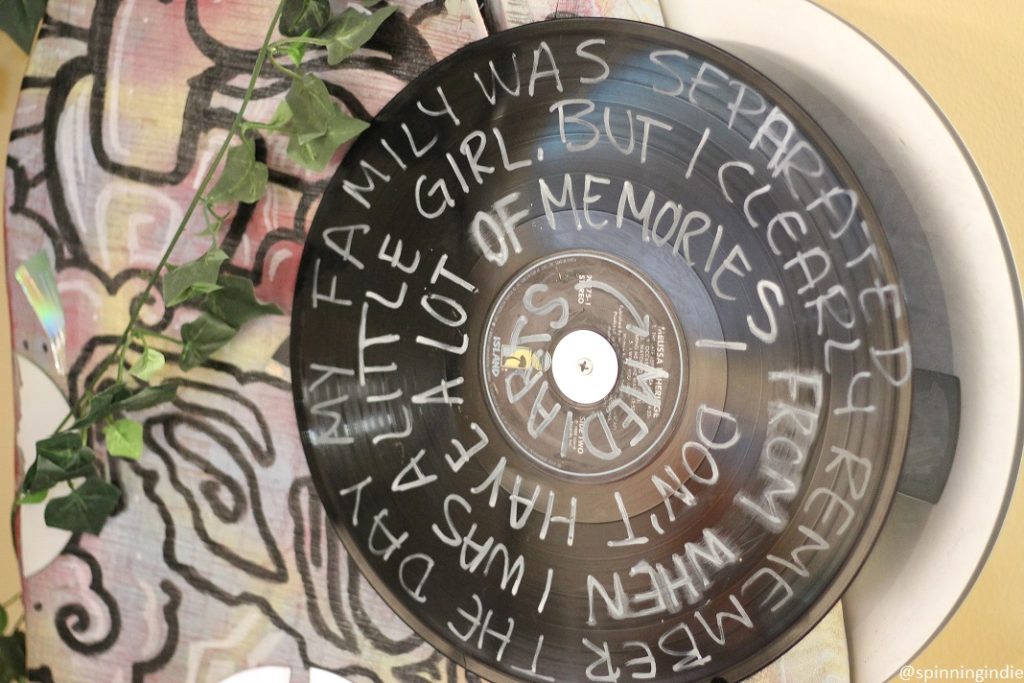
KGNU has also brought high school students into the station alongside a training program (including bilingual storytelling) that takes place in the schools. Russo pointed out that they are already noticing an increase in interns from that partner high school and that it’s important for KGNU to learn from young people how to make the station a more “relevant” place for them.
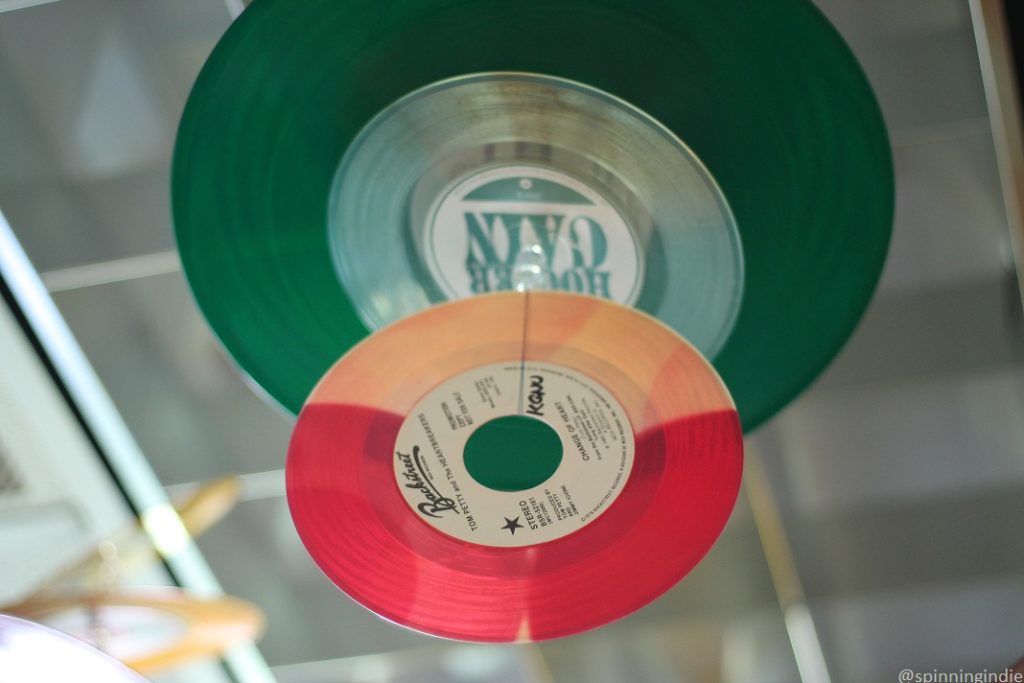
Russo articulated KGNU’s desire to “keep the doors open” to youth and also allow for all volunteers to try new things and innovate. He said that it can be challenging for new folks to break into the programming schedule at KGNU, where there are more applicants than time slots. He’s hoping to create more opportunities and “side channels” in order to include more voices. In part, that’s where After FM and HD come in for KGNU. Those channels are available as “training and innovation spaces” and as places to try out new programming, according to Russo.
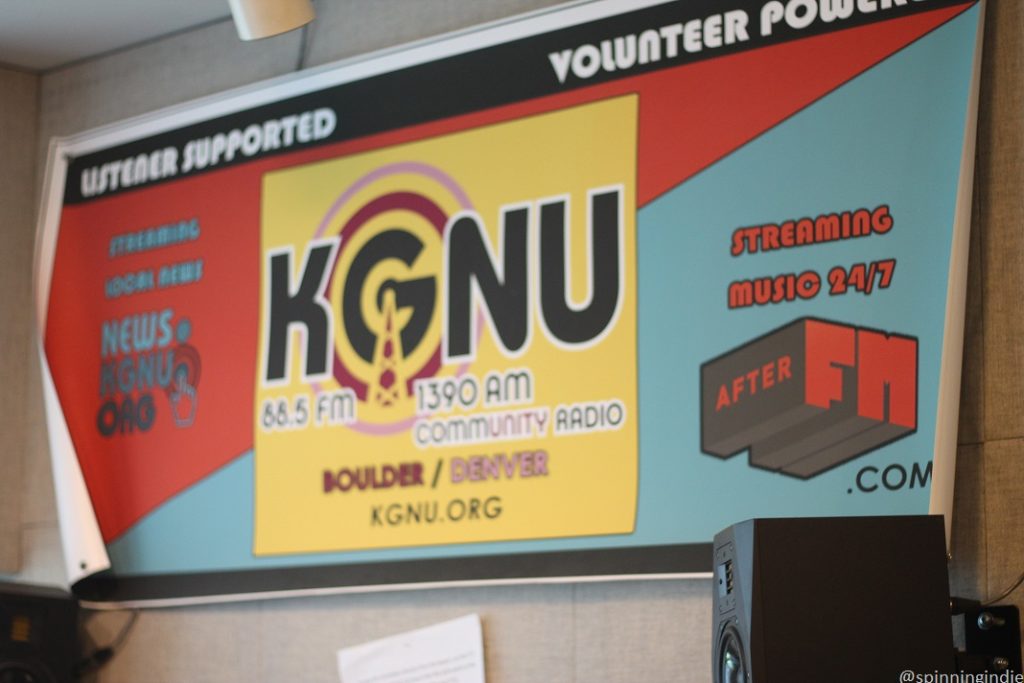
KGNU’s ethos as a “community-powered” station is palpable. Russo elaborated that, “We’re very much a mission-driven organization and that’s to be an amplifier for underrepresented voices, culture and community. So we definitely say that KGNU for 40 years has been amplifying community voices, culture and music.”
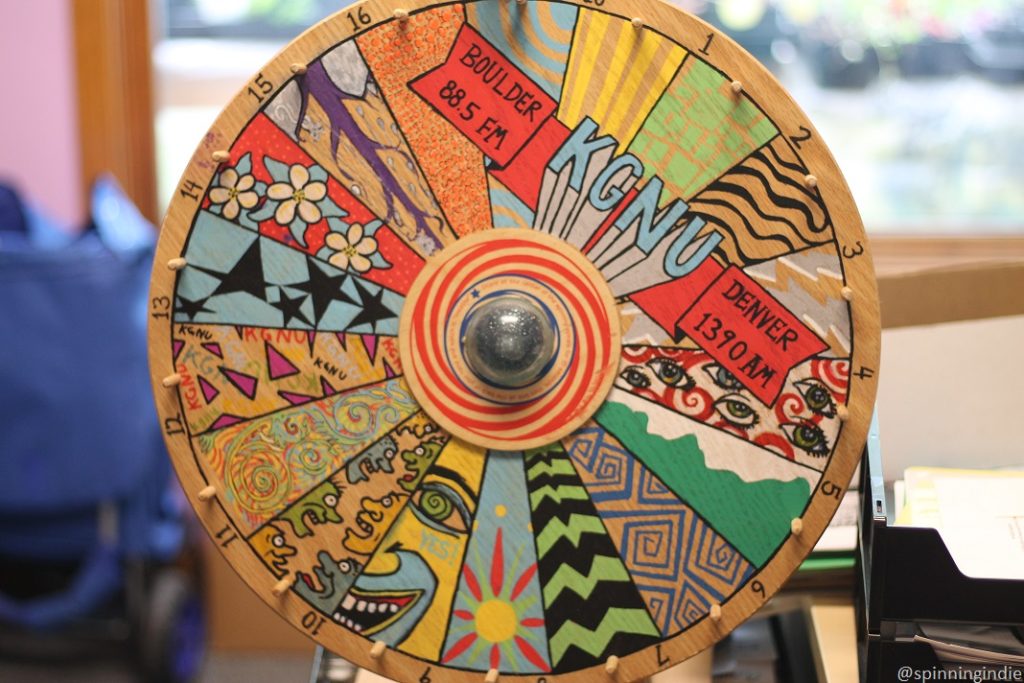
The desire to keep in touch with and change with the community is admirable. Russo told me that KGNU strives to be “perpetually relevant” and a place that is “reflecting the interests of the community” as a “cultural center” and “hub” for the community. “It’s much more than a radio [station],” Russo opined.
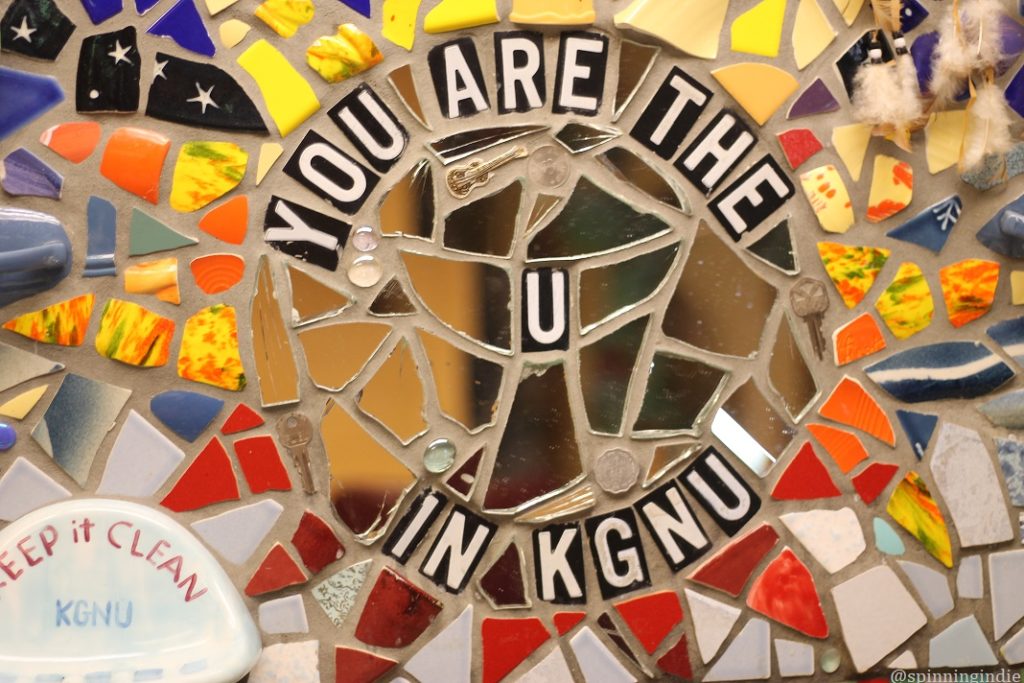
Thanks to Tim Russo and everyone at KGNU for the lovely summer visit. This is my 163rd radio station tour report and my 34th community radio station recap. View all my radio station visits in numerical order or by station type in our archives.

